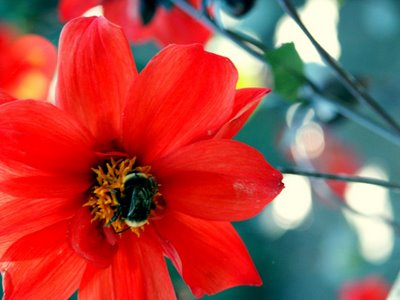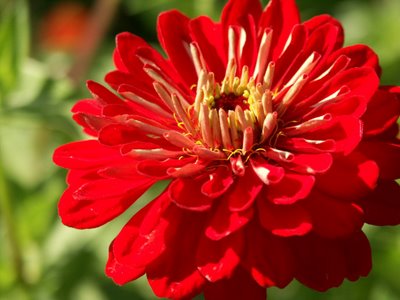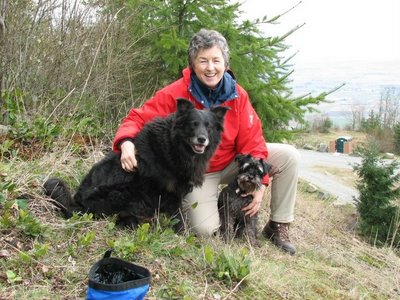A single-minded, youthful preoccupation with cryptic, covert, eerie murder mysteries worried my parents. Carolyn Keen, Sir Arthur Conan Doyle and Ian Fleming kept me company late nights under the covers, flashlight in hand. The macabre tales of Edgar Allan Poe frightened me, yet held me enthralled:
“A succession of loud and shrill screams, bursting suddenly from the throat of the chained form, seemed to thrust me violently back. For a brief moment I hesitated, I trembled. Unsheathing my rapier, I began to grope with it about in the recess; but the thought of an instant reassured me. I placed my hand upon the solid fabric of the catacombs, and felt satisfied. I reapproached the wall. I replied to the yells of him who clamored. I reechoed, I aided, I surpassed them in volume and strength. I did this and the clamorer grew still.”
Around age seventeen this absorption with reading mysteries abruptly ceased. An endless list of authors entered my reading landscape: Steinbeck, Michener, Vonnegut, Tolkien, Heinlein, Uris, Dostoevski, Nietzche, Faulkner, Voltaire, Nin, Conrad, Kazenzakis. Freed from dominion of parents and brothers, not yet consumed by the demands of motherhood, I explored new vistas that took me outside my narrow identification with the world, its cultures and histories. Hesse’s
philosophical writings embodied my inward struggles:
“Oh, if only it were possible to find understanding,” Joseph exclaimed. “If only there were a dogma to believe in. Everything is contradictory, everything tangential; there are no certainties anywhere. Everything can be interpreted one way and then again interpreted in the opposite sense. The whole of world history can be explained as development and progress and can also be seen as nothing but decadence and meaninglessness. Isn’t there any truth? Is there no real and valid doctrine?” The master had never heard him speak so fervently. He walked on in silence for a little, then said, “There is truth, my boy. But the doctrine you desire, absolute, perfect dogma that alone provides wisdom, does not exist. Nor should you long for a perfect doctrine, my friend. Rather, you should long for the perfection of yourself. The deity is within you, not in ideas and books. Truth is lived not taught. Be prepared for conflicts, Joseph Knecht—I can see they have already begun.”
Toward age thirty, Maslow, May, Satir, Adler, Fromm, Freud and, most notably Jung, dominated my reading landscape, sharing the scene only with angst –filled poetry. I peeked out from under the bell jar with Sylvia Plath:
“It is a terrible thing
To be so open: it is as if my heart
Put on a face and walked into the world.”
Jung said that the most deadly enemy we must learn to forgive is the dark side of our own nature. My shadow lurked on the perimeters of my mind devising ever more ingenious and devious ways to trip me.
Then, out of the psychedelic mists, Casteneda’s don Juan leapt into my path:
“For you, the world is weird because if you’re not bored with it you’re at odds with it. For me the world is weird because it is stupendous, awesome, mysterious, unfathomable; my interest has been to convince you that you must assume responsibility for being here, in this marvelous world, in this marvelous desert, in this marvelous time. I wanted to convince you that you must learn to make every act count, since you are going to be here for only a short while, in fact, too short for witnessing all the marvels of it.”
Over the next hill I met Buddha: “The foot feels the foot when it feels the ground.” The delusions of ego chafed at Lao tzu: “To know how little one knows is to have genuine knowledge. Not to know how little one knows is to be deluded. Only he who knows when he is deluded can free himself from such delusion. The intelligent man is not deluded, because he knows and accepts his ignorance as ignorance, and thereby has genuine knowledge.” Gurdjieff puzzled me: “You do not realize your own situation. You are in prison. All you can wish for, if you are sensible man, is to escape. But how to escape?…If a man is at any time to have a chance of escape, then he must first of all realize that he is in prison. So long as he fails to realize this, so long as he thinks he is free, he has no chance whatsoever.”
Ram Dass made me laugh at my cozy association with pain: “As you look at many people’s lives, you see that their suffering is in a way gratifying, for they are comfortable in it. They make their lives a living hell, but a familiar one.”
Just when I was beginning to get a handle on my wretched self, Bohm, Capra, Zukav and Wolf boggled my mind with their Quantum leaps: “Ultimately, the entire universe…has to be understood as a single whole.”
Lengthy years of working with ill people urged the reading of various holistic health concepts. The ancient connection of mind, body, spirit was coming full circle in books such as Space, Time, Medicine, Love, Medicine and Miracles, Shaman’s Path, Creating Health, Access to Inner Worlds, and Joy’s Way. Soon after the nuclear accident at Chernobyl, Michael Harner, a Shaman, wrote:
“If the nation states of the world are working day and night on a crash course of their own for our mutual annihilation, we cannot afford to be any slower in our work in the opposite direction. The leisurely teaching that was possible in ancient tribal cultures is no longer appropriate. The forces of nuclear and ecological destruction are in a hurry, and we must be too. People need to be awakened, not just through ordinary reality education, however important it is, but also through personal heartfelt spiritual realization—deep realization of the connectedness of all things. May we work together, and fast as we can.”
At the same time a prolific resurgence of Native American spirituality infused my desire to connect on a deeper level with the earth and all its inhabitants.
Grandfather
Look at our brokeness
We know that in all creation
Only the human family
Has strayed from the Sacred Way.
We know that we are the ones
Who are divided
And we are the ones
Who must come back together
To walk in the Sacred Way
Grandfather
Sacred One.
Teach us love, compassion and honour
That we may heal the earth
And heal each other
Ojibway prayer
It feels as if the planetary consciousness is awakening to the extreme perils we all face. Authors such as Wendell Berry, Bucky Fuller, Bateson, Lovelock and Goldsmith urge us toward an ecological consciousness that may enable us to find a new path toward a sustainable world. In his book, Awakening Earth, Duane Elgin states: “We have reached a choice-point, and the decisions we make during this extraordinary time of transition will reverberate into the distant future.”
I wish that reading these books kept me up late nights under the covers with the same excitement and daring as James Bond, agent 007. More often than not, I fall asleep with a book over my face, not very late at night. The innocence and carefree naiveté of youth are barely discernible on the edges of poignant reminiscence. What remains is a penchant for the unknown and mysterious, the urgent search for solutions, the puzzling, omnipresent elements of paradox.
Contemplating the future sometimes scares the hell out of me. A sense of helplessness grips me. All action appears futile against the larger backdrop of looming worldwide threats. Simultaneously, beneath my fears and turbulent emotions a calm awareness is felt, which buoys my connection to the harmonious flow of the universe. Life appears as a shining miracle. The wonder of a child and the wisdom of a sage infuse my spirit.
Simone Weil said contradiction is the criterion of reality. When reality presses in too closely, I play Bob Dylan: “Don’t think twice, it’s all right.”
Sue Shellenberger

























